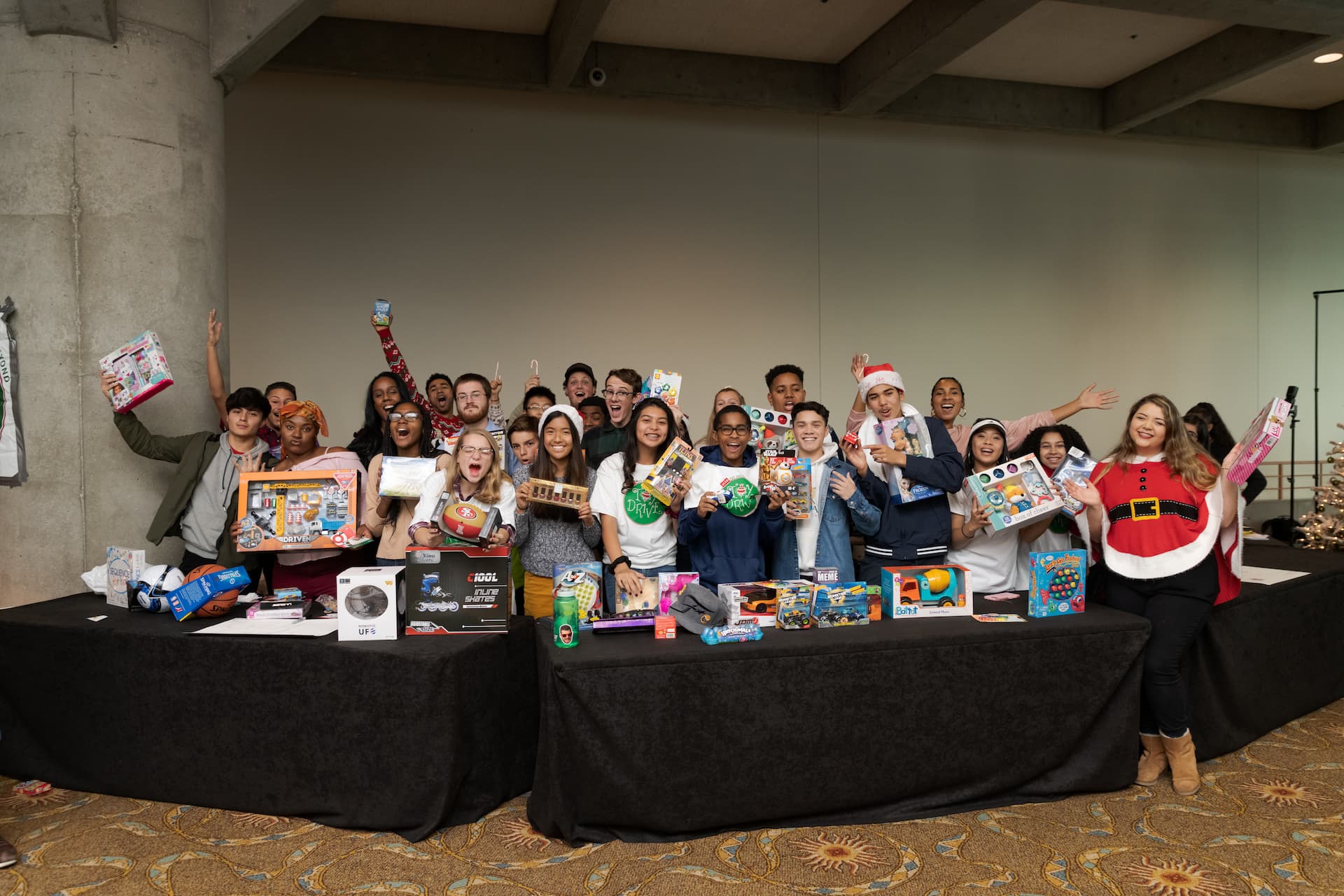Sign up for The Good Stuff
Our weekly newsletter filled with news, updates, and inspiring stories of how God is working in the Bay Area.
"*" indicates required fields
Sign up for The Good Stuff
Our weekly newsletter filled with news, updates, and inspiring stories of how God is working in the Bay Area.
"*" indicates required fields
The Story of Elkanah & Hannah
Do you remember your first fight? Our first major fight happened after our honeymoon. I had somehow upset my wife to the point where she locked herself in the bedroom while I left the house and drove away. I don’t recall specifically what we fought about, but one thing I remember was the fear that set in as I drove back home. “If this is where we’re at just weeks into our marriage, how will we last together as we vowed, ‘till death do us part’?” Little did I understand the deficit of resilience I had when it came to my relationships. My fear of rejection drove me to quit early on relationships whenever I foresaw pain or disappointment around the corner.
What is resilience? “The ability to recover from setbacks, adapt well to change, and keep going in the face of adversity.”
Love drives resilience, while fear erodes it. Since that fight along with many that have since followed, I learned that my struggle to never quit in my marriage has little to do with my wife. Rather, it has everything to do with how I let fear consume me—fear of rejection, fear of failure, and fear of change. When fear dominates me, I have no room or strength to love. Yet love is at the core of resilience and essential to becoming “fear-resistant”, especially in marriage:
Love contains no fear—indeed fully-developed love expels every particle of fear, for fear always contains some of the torture of feeling guilty. This means that the man who lives in fear has not yet had his love perfected.
1 John 4:18 JBP
“Love takes everything that comes without giving up. Love believes all things. Love hopes for all things. Love keeps on in all things. Love never comes to an end.”
1 Corinthians 7-8a NLT
For any marriage to thrive and overcome the storms of life (loss, disappointment, financial difficulties, chronic health challenges, parenting, aging, or another unforeseen adversity), resilience is key to building strong, inspiring marriages. The resilient marriage is not one without fear, but it’s one that develops a the courage to overcome it:
“Courage is resistance to fear, mastery of fear, not absence of fear.”
Mark Twain
I believe that countless marriages have been abandoned because one or both spouses lacked the courage and strength to love and see beyond their individual or shared fears. These fears are often rooted in guilt – guilt from sin as well as guilt from unresolved or undisclosed critical thoughts and negative emotions. Those who have overcome guilt, setbacks, and adversity are those who’ve learned to be fear-resistant. In other words, they’ve learned how to find the strength to love despite difficulty and defeat. This strength to love and be fear-resistant comes from God:
7 Dear friends, let’s love each other, because love is from God, and everyone who loves is born from God and knows God. 8 The person who doesn’t love does not know God, because God is love.
1 John 4:7-8 CEB
Being fear-resistant does not mean being without fear. Everyone faces some obstacle they fear can never be overcome, especially in marriage. Perhaps it’s unfaithfulness, bitterness, loss of a child or inability to have children, intimacy challenges, difficulty in communication, or financial duress. Yet we do not need to let fear define or decide our destiny. With God, any couple can build a thriving, inspiring and resilient marriage. One such couple in the Bible who became fear-resistant is Elkanah and Hannah. Despite facing dysfunction, disappointment, and defeat, they developed a resilience that left a profound spiritual legacy together.
Here are 4 key decisions we can learn from Elkanah and Hannah to build an inspired and resilient marriage:
1. Believe Your Destiny Trumps Your Dysfunction
2 Elkanah had two wives named Hannah and Peninnah. Peninnah had children, but Hannah had none.
3 Every year Elkanah left his town of Ramah and went up to Shiloh to worship the Lord All-Powerful and to offer sacrifices to him. Shiloh was where Hophni and Phinehas, the sons of Eli, served as priests of the Lord. 4 When Elkanah offered sacrifices, he always gave a share of the meat to his wife Peninnah and to her sons and daughters. 5 But Elkanah always gave a special share of the meat to Hannah, because he loved Hannah and because the Lord had kept her from having children. 6 Peninnah would tease Hannah and upset her, because the Lord had made her unable to have children.1 Samuel 1:2-6 NCV
A dysfunctional family can be defined as being “continually out of balance and frequently teetering on the edge of crisis (or in continual crisis). The dysfunctional family is full of unresolved conflicts and negative emotions such as toxic shame and fear…”
Elkanah had what many would consider a dysfunctional family – one husband with two wives, simultaneously living together. He loved his first wife who was unable to have children more than his second wife who provided him with children. Though the Bible never endorses polygamy, God allows us to learn from the lives and even the missteps of people in the Bible, including those who chose to have more than one wife (Romans 15:4).
That fact that Hannah’s name is written first before Peninnah and that it’s noted specifically that Elkanah loved Hannah both suggest that Hannah was Elkanah’s first wife before Peninnah. Regardless of whether Elkanah had decided to marry Peninnah in order to have children since Hannah was unable, or Hannah just tolerated sharing her husband with another wife, Elkanah made one priority clear: every year without fail he would make the journey to seek and honor God taking his entire family. Why? He chose to resolutely believe in God over the immediate dysfunction and discontent of his family. He believed God would lead him and his family to his destiny.
Do you believe God can trump any dysfunction you’re experiencing to fulfill his destiny – especially in your marriage and family?
2. Engage to Understand Rather than Avoid
6 Peninnah would tease Hannah and upset her, because the Lord had made her unable to have children. 7 This happened every year when they went up to the house of the Lord at Shiloh. Peninnah would upset Hannah until Hannah would cry and not eat anything. 8 Her husband Elkanah would say to her, “Hannah, why are you crying and why won’t you eat? Why are you sad? Don’t I mean more to you than ten sons?”
1 Samuel 1:6-8 NCV
Rather than fearfully avoid the strong emotions Hannah had, Elkanah asked his wife three “why” questions. Any time we ask “why” it’s a choice to engage the heart. Asking “why” questions reveals the motives and depths of the heart. Elkanah chose to engage Hannah rather than avoiding and quitting on her:
- Why are you crying? Elkanah was interested in the depth of her response to disappointment. How often do we engage to understand why our spouse responds the way he/she does to disappointment? Rather than making critical assumptions often rooted in fearful distrust, focus on understanding what is at the root of our spouse’s responses.
- Why won’t you eat? Elkanah wanted to know the motive behind her decision not to eat. Rather than criticize our spouse for their decisions, why not engage them to understand what motivates them?
- Why are you sad? Elkanah wanted to understand Hannah’s emotions rather than avoid them. How often do we draw out our spouse’s emotions to better understand the truth about what’s at the root of them?
- Don’t I mean more to you…? Despite Elkanah’s insecurity about what he meant to Hannah, he chose to be vulnerable by asking this question rather than hiding his thoughts. What insecurities and thoughts are you unwilling to reveal to your spouse? Whatever we hide will only weaken us internally, whereas honesty builds trust – an essential key to building resiliency.
3. Turn Pain Into Purpose with God
9 When the sacrifice had been offered, and they had eaten the meal, Hannah got up and went to pray. Eli was sitting in his chair near the door to the place of worship.10 Hannah was brokenhearted and was crying as she prayed,11 “Lord All-Powerful, I am your servant, but I am so miserable! Please let me have a son. I will give him to you for as long as he lives, and his hair will never be cut.” 12-13 Hannah prayed silently to the Lord for a long time. But her lips were moving, and Eli thought she was drunk.
16 Don’t think of me as an evil woman. I’ve been praying here because I’m very sad. My pain is so great.” 17 Eli answered, “Go in peace. May the God of Israel give you what you have asked him for.” 18 She said, “May you be pleased with me.” Then she left and had something to eat. Her face wasn’t sad anymore.1 Samuel 1:9-13, 16-18 CEV
Did you start out believing your marriage was destined for something great? Because of setbacks, are you now afraid it will never become a reality? This is what Hannah was experiencing. She believed she was a “servant of God”, that part of her purpose was to build a family together with Elkanah. Yet after many years, she was still childless, sharing her husband now with another woman and being ridiculed without relief. Yet Hannah refused to let her pain influence her to quit on her husband or on God; instead she allowed her pain to drive her closer to God. Rather than bitterly blaming her husband or Peninnah, Hannah ultimately found purpose in the midst of her pain. No longer just wanting to become a mother, she wanted to give God a child who would grow up to fulfill God’s purposes.
This was the difference between this particular year she prayed at Shiloh, and all the previous years while being teased and barren – she gained perspective, by resolving to want what God wanted. She wanted a boy, God wanted a prophet who would be key to raising up future leaders to change the world. It was through prayer that she gained new perspective – she saw beyond her pain, and saw God’s greater purpose for her future son.
4. Move Forward Together with Courage
19 Early the next morning Elkanah and his family got up. They worshiped the Lord. Then they went back to their home in Ramah. Elkanah slept with his wife Hannah. And the Lord blessed her. 20 So after some time, Hannah became pregnant. She had a baby boy. She said, “I asked the Lord for him.” So she named him Samuel.
1 Samuel 1:19-20 NIRV
The annual family trip to Shiloh was concluded. Despite all the challenges – the dysfunction between Elkanah and his wives, the discouraging teasing of Hannah by Peninnah, the emotional interactions between Hannah and Elkanah, and the distressful prayers of Hannah – neither Elkanah nor Hannah ever gave into fear or quit in the midst of it all. They became resilient by resolving to make God their greatest priority and returned home with greater peace and intimacy than before. They chose courage to move beyond their past, to begin to build a family, and to trust that God wasn’t finished with them yet. As a result, God was moved and answered their prayer. He gave them a son of their own, Samuel, who would go on to be one of the most courageous, resilient men in the Bible. Samuel would lead God’s people while raising up powerful kings to build God’s kingdom.
Embracing decisions
By embracing these 4 decisions in the face of fear, we can build spiritual, resilient marriages that inspire hope and change in others, beginning in our own families.
Ask yourself the following questions:
- Why do think God put you and your spouse together, regardless of present difficulties and dysfunction?
2. What do you fear and avoid engaging your spouse about when it comes to understanding his/her emotional, relational,
physical, and spiritual condition and why?
3. How can you change your prayer life, to become God-focused rather than problem-focused?
4. What action will you and your spouse take to leave the past behind, and to live out the dream you believe God gave you
when you first married?

Written by
Ray Kim
Ray Kim is a Southern California native who made the Bay Area his home after graduating from the University of California, Berkeley. He is passionate about community service, and is spearheading such efforts as the E-Hoops program at the University of San Francisco.
- |
Here are some meaningful ways you can join our church in making a difference around the Bay Area this holiday season.
Having Trouble with giving through the PayPal Giving Fund? Here are some simple fixes you can try.


